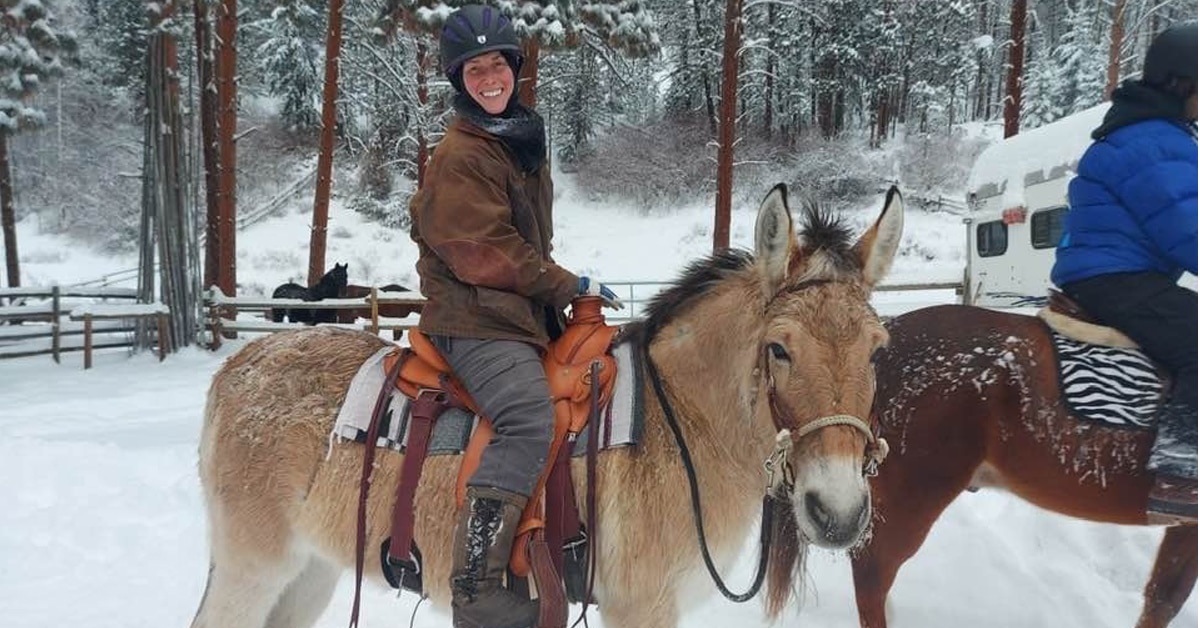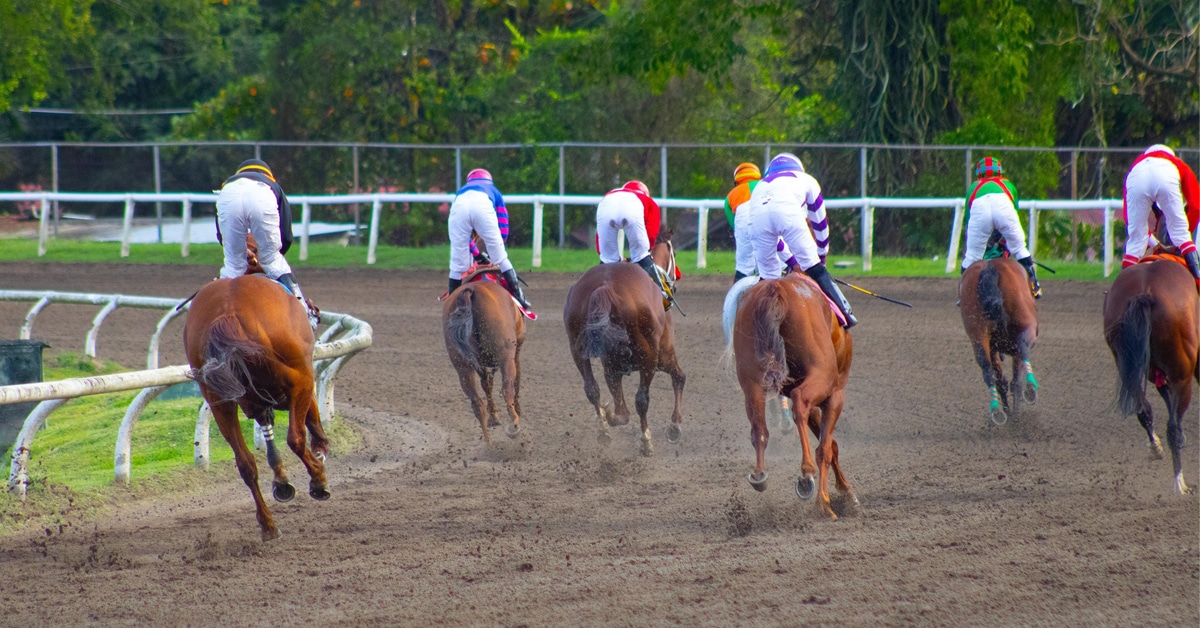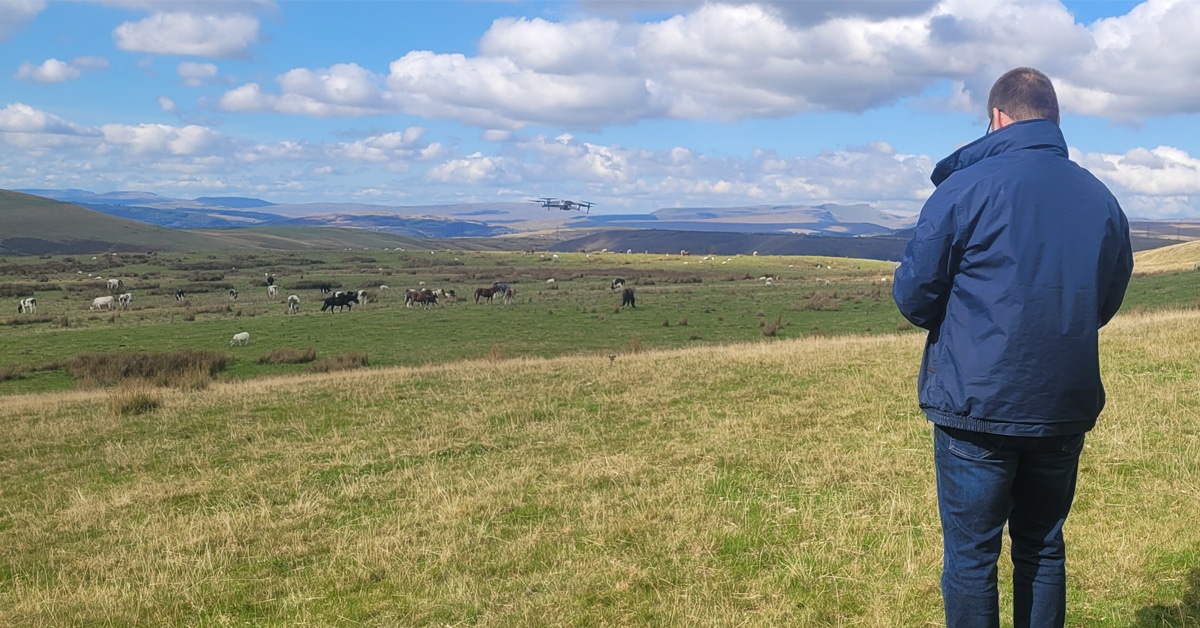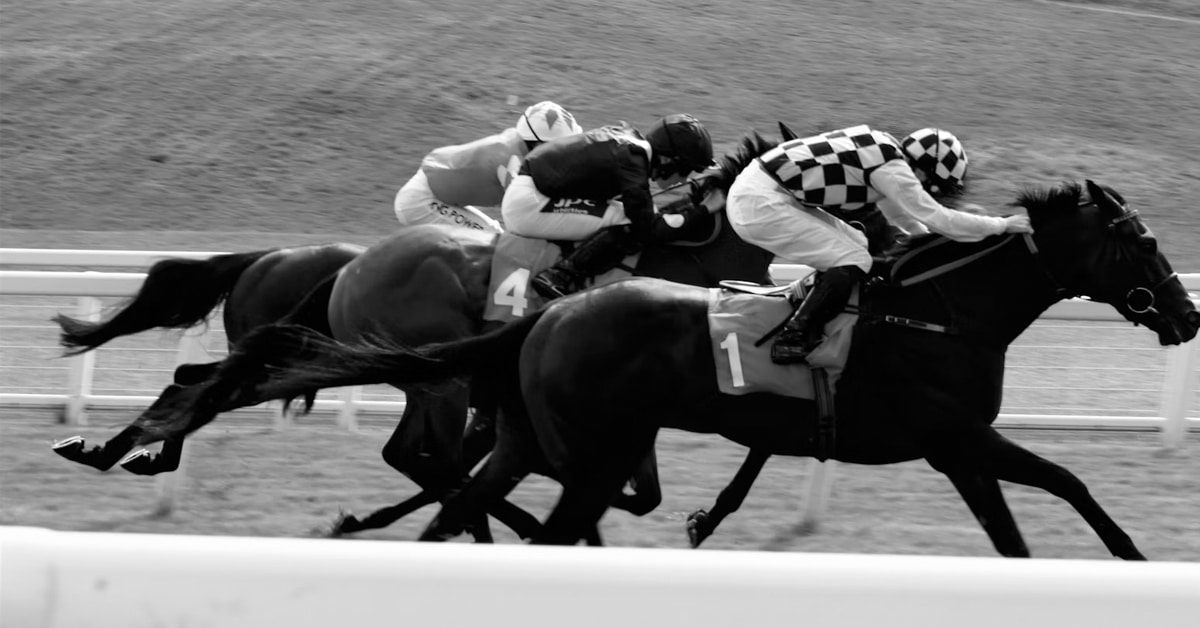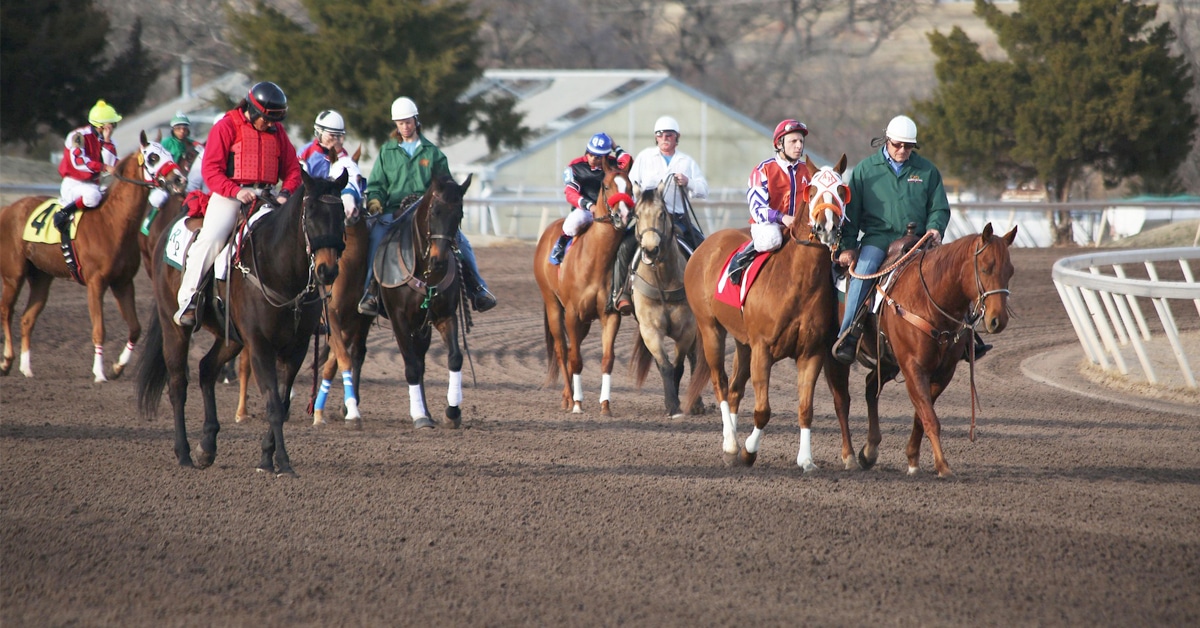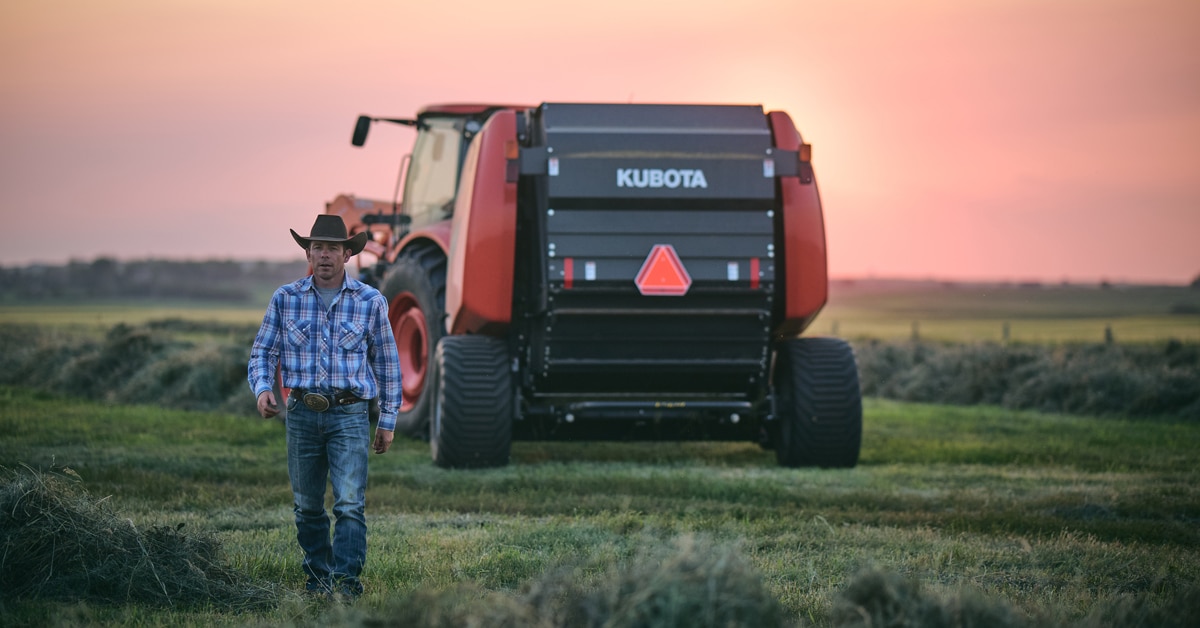You know what winter means: ice, snow, cold. Fewer daylight hours for riding. More money spent on hay and grain.
And if you have a senior, ill or underweight horse, it may also mean paying a little extra attention to making sure he is healthy and fit through the colder months.
Maintaining Condition
Gayle Ecker, director of Equine Guelph, said horse owners need to make sure they are getting hands-on with their animals in order to determine their condition. It’s too hard with fuzzy winter coats to assess weight just by looking, so frequent grooming sessions that give you a chance to feel for the horse’s ribs and the amount of fat and muscle on the back and body are important.
The most common concern is weight loss and Ecker finds that some owners take this rather lightly. “They’ll say, ‘Oh, he’ll pick up again in the spring.’ But this is not okay. We should not be allowing these older horses to get thin. The new equine code of practice says that horses who score three or less on body condition require intervention, and we need to take care of them.”
Weight Loss Causes
Digestion
Senior horses, as a general rule, often have trouble maintaining their weight over the winter, said Dr. Robert Tremblay, technical services veterinarian with Boehringer Ingelheim, Canada, Ltd. “As horses get older, they become less efficient at digesting food and extracting the nutrients,” he explained. “They also need more protein in their diet.”
Hay is harder for a horse to digest than the fresh grass available in spring and summer. A senior horse who is part of a herd with younger animals may also find himself in competition for the hay, making it tough for him to get all he needs. Older horses also tend to eat more slowly, so even when separate food portions are set out the younger horses can finish first and head over to steal what’s left of the senior horse’s food.
Strategies: Dr. Tremblay recommends that a horse’s feed should be measured by weight rather than volume. “You need to know how much a scoopful of a particular feed is by weight, because the feeds have different densities.” This applies to hay as well as prepared feeds. You may think you are giving the horse the same amount you gave last year, but if it has a lower density the horse will actually be getting less.
Special “senior diet” foods provide the appropriate level of protein and help to compensate for an older horse’s less efficient digestion, and can make a big difference to the animal who is not maintaining weight on his usual foods. Extruded foods may also be easier for a horse to digest, because the steaming process starts it along the road to breaking down.
Look for forage that will be easier for the horse to eat. “If you can take your bare hands and create a ball with the forage, then it is suitable for a senior horse,” he said.
How you manage the group dynamics around feeding times will depend on your facility’s set-up. For example, some owners bring their older horses into stalls or a smaller pen for morning and evening feeding times. (This also can give you an opportunity to quickly check for condition.) Others may need to provide some separation in the pasture.
Dental
A horse’s teeth continue to erupt throughout his life, and as he gets older some changes occur due simply to long use. Any problems that have not been dealt with earlier are likely to get worse once your horse is past 20, and older horses may have cracked teeth, missing teeth and teeth that are not aligned. These make it difficult to chew effectively – and forage and grains need to be chewed well in order to be digested in the horse’s gut – and may also be causing the horse pain that makes him reluctant to eat at all.
Strategies: Step one, said Dr. Tremblay, is to have your older horse’s teeth checked by a veterinarian. In fact, he recommends a dental check every six months in many cases. This should bring to light any conditions needing treatment or changes in feeding.
Dehydration
Senior horses tend to lose their natural thirst and desire to drink sufficient water, explained Dr. Tremblay. If the horse has cracked or damaged teeth, drinking water – especially cold water – may actually be painful. Lack of water can lead to chronic dehydration for many senior horses, and that increases the risk of impaction colic and metabolic issues. “We tend to think of dehydration as being a problem in summer, when horses are being worked hard in the heat,” he said. “But especially for older horses it can also be a problem in the winter.”
Strategies: Don’t rely on any horse being able to get the water he needs by eating snow. He needs fresh water daily and it should be lukewarm rather than icy cold.
To encourage horses to drink more, Dr. Tremblay said some owners add salt to the horse’s feed. Another strategy is to give feed with more water such as mashes or dampened hay or to offer warmed water.
Parasites
Another cause of weight loss can be parasites. As Dr. Tremblay pointed out, the traditional approach to parasites (regular cycles of general deworming) is no longer recommended. Instead, he advises owners to have their horses’ feces tested to identify parasites that are present and treat in response. Horses with weakened or stressed immune systems, a common condition in older horses, are more susceptible to parasites.
Strategies: Ecker recommends that you work with your vet to create a testing and treatment strategy to manage the parasites in your horse. (Learn more about new deworming protocols in the September/October issue).
Temperature
A horse that is a bit underweight will find it harder to keep warm in winter because he lacks that insulating layer of fat. Senior horses also have less muscle, which makes it harder to stay warm because muscle generates heat better than other body tissues. Ecker explained that if the horse starts to feel chilled, he will use up additional energy trying to stay warm and this can cause further weight loss.
Strategies: Blanketing your horse may be necessary if his weight is low or if he is clipped. If he is outdoors much of the time – something both Ecker and Dr. Tremblay recommend – make sure he has access to good shelter. And keep an eye on the herd dynamics: sometimes the slower senior horse is left outside when all the other horses are huddling in the run-in shed.
Although weight loss is probably the more common issue, weight gain can also be a problem.
Weight Gain Causes
An older horse with arthritis or other chronic pain may not move around as much, and may experience muscle loss. When the weather is bad, the owner may decide to keep the horse in his stall much of the time. If this situation provides the horse with access to plenty of food, it’s easy for him to overeat and put on too much weight – something that may be hidden by a thick winter coat and perhaps a winter blanket. “One of the worst things is letting the horse get fat,” said Dr. Tremblay. “It’s a long way back from there.” A senior horse has less muscle (which would burn more calories) and is likely to gain even more weight when the spring grass emerges.
Strategies: Dr. Tremblay stresses the value of regular exercise for older horses. “You need to be sensitive to the individual horse – there needs to be two-way communication when you are riding or otherwise exercising him,” he said. “He won’t have the range of motion and endurance he had when he was younger.”
However, Dr. Tremblay added, regular exercise is good for a lot of things: it helps to keep his joints, heart and lungs healthy, and will build muscle. It will also help maintain the horse’s weight at an appropriate level.
How much exercise? Obviously, it will depend on the horse’s current level of fitness and whether any chronic illnesses are creating problems for him. In general, though, 30 minutes of moderate exercise three to five times a week would help keep a horse in shape over the winter. If the horse has been sedentary, Dr. Tremblay recommends more frequent exercise sessions at a lower level of exertion until the horse’s fitness improves.
Note that older horses tend to lose muscle, including muscle on their backs, and this can mean your saddle no longer fits properly. Be sure to have it checked to avoid causing the horse pain.
Other Winter Worries
Injuries
Of course, exercising a horse in winter presents its own challenges, especially if you don’t have an indoor arena. Ecker noted that because seniors are more likely to have arthritis, tendon injuries and other conditions that can affect their flexibility and range of motion, they are more likely to fall on slippery ice or injure themselves in deep snow. They may also have more difficulty getting up if they do fall. That applies when they are just walking in pasture as well as when they are being exercised. “Try to clear pathways and use salt or kitty litter on ice patches,” Ecker said. She cautions against using sand or salt in areas where the horses might accidentally eat it as it can cause colic.
Colic
Speaking of colic, this serious condition is more common in senior horses and the problems mentioned above often contribute to the risk. If the horse has become dehydrated, for example, or has a high parasite load, colic is more likely. The horse who is not chewing his food well is also at risk. It’s important to monitor your horse regularly for signs of pain or for lack of manure. (See page 20 for more on colic.)
Chronic Illnesses
Winter can aggravate several of the chronic illnesses that afflict senior horses. Equine asthma (heaves, recurrent airway obstruction, chronic obstructive pulmonary disease) can be made worse by being kept indoors or by feeding dusty hay. Dr. Tremblay said, “It’s ideal to have the horse be outside for as much of the day as possible, but you have to be sure the horse has access to shelter, food and water, is warm enough and that the ground is safe.”
Avoid using straw or wood shavings as bedding; wood pellets, peat moss (as long as it is not moldy), hemp (again, watch for mold) and shredded newspapers are preferable as they produce less dust. (Try stirring or shaking up some of the bedding you have in mind to see how much dust it creates.)
Other illnesses which can get worse in colder weather are arthritis and pituitary pars intermedia dysfunction (aka Cushing’s). “These diseases are treatable and manageable,” said Ecker. “I think sometimes we assume that the horse is old, it’s winter, so it’s to be expected that the horse will have these problems. It’s important to talk to your vet and find out what you can do to manage the disease.”
Quality of Life
Ecker added that winter may be a time when horse owners begin thinking of euthanasia for their older equines. She shared a story of one senior horse that had repeated bouts of colic each winter, despite the owner’s efforts to manage his feeding and hydration appropriately. The horse also found it increasingly difficult to get around due to his arthritis. “This horse, like many seniors, had so much personality. The owner didn’t want to let him go,” said Ecker. “But you have to keep in mind, it’s not about you, it’s about the horse’s quality of life.”
Equine Code of Practice
To review the National Farm Animal Care Council’s Code of Practice for the Care and Handling of Equines, released in 2013, go to nfacc.ca/codes-of-practice/equine.
The Latest

